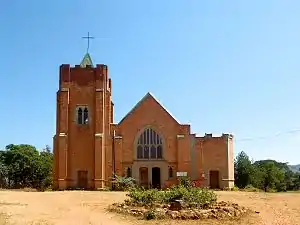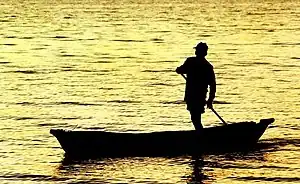The Malawi Portal
Malawi (/məˈlɔːwi, məˈlɑːwi/; Chichewa pronunciation: [maláβi]; Tumbuka: Malaŵi), officially the Republic of Malawi and formerly known as Nyasaland, is a landlocked country in Southeastern Africa. It is bordered by Zambia to the west, Tanzania to the north and northeast, and Mozambique to the east, south and southwest. Malawi spans over 118,484 km2 (45,747 sq mi) and has an estimated population of 19,431,566 (as of January 2021). Malawi's capital (and largest city) is Lilongwe. Its second-largest is Blantyre, its third-largest is Mzuzu and its fourth-largest is its former capital, Zomba. The part of Africa now known as Malawi was settled around the 10th century by migrating Bantu groups. Centuries later, in 1891, the area was colonised by the British as the British Central African Protectorate, renamed Nyasaland in 1907. In 1953, it became a protectorate within the semi-independent Federation of Rhodesia and Nyasaland. The Federation was dissolved in 1963. In 1964, the protectorate was ended: Nyasaland became an independent country as a Commonwealth realm under Prime Minister Hastings Banda, and was renamed Malawi. Two years later, Banda became president by converting the country into a one-party presidential republic. Declared President for life in 1971, Malawi's next few decades of independence were characterized by Banda's highly repressive dictatorship. Following the introduction of a multiparty system in 1993, Banda was defeated in the 1994 general election. Today, Malawi has a democratic, multi-party republic headed by an elected president and has continued to experience peaceful transitions of power. According to 2023 V-Dem Democracy indices Malawi is ranked 63rd electoral democracy worldwide and 6th electoral democracy in Africa. The country's military, the Malawian Defence Force, includes an army, a navy, and an air wing. Malawi's foreign policy is pro-Western. It maintains positive diplomatic relations with most countries, and participates in several international organisations, including the United Nations, the Commonwealth of Nations, the Southern African Development Community (SADC), the Common Market for Eastern and Southern Africa (COMESA), and the African Union (AU). Malawi is one of the world's least-developed countries. The economy is heavily based on agriculture, and it has a largely rural and rapidly growing population. The Malawian government depends heavily on outside aid to meet its development needs, although the amount needed (and the aid offered) has decreased since 2000. The Malawian government faces challenges in its efforts to build and expand the economy, to improve education, healthcare, and environmental protection, and to become financially independent despite widespread unemployment. Since 2005, Malawi has developed several policies that focus on addressing these issues, and the country's outlook appears to be improving: key indicators of progress in the economy, education, and healthcare were seen in 2007 and 2008. Malawi has a low life expectancy and high infant mortality. HIV/AIDS is highly prevalent, which both reduces the labour force and requires increased government expenditures. The country has a diverse population that includes native peoples, Asians, and Europeans. Several languages are spoken, and there is an array of religious beliefs. Although in the past there was a periodic regional conflict fuelled in part by ethnic divisions, by 2008 this internal conflict had considerably diminished, and the idea of identifying with one's Malawian nationality had reemerged. (Full article...) Selected article -The Natives on Private Estates Ordinance, 1928 was a colonial ordinance passed by the Legislative Council of the Nyasaland Protectorate (now Malawi). The body was composed mainly of senior colonial officials, with a minority of nominated members, to represent European residents. The ordinance regulated the conditions under which land could be farmed by African tenants on estates owned by European settlers within that protectorate. The legislation corrected some of the worst abuses of the system of thangata under which tenants were required to work for the estate owner in lieu of paying rent. However, the ordinance failed in its intention of encouraging these tenants to increase the production of crops on the undeveloped land within those estates because of the worldwide 1930s Great Depression. Tensions between estate owners and tenants continued in the 1940s and the early 1950s over evictions and the tenants’ desire to market their produce freely. (Full article...)Did you know -
CategoriesCategory puzzle Select [►] to view subcategories
Malawi Malawi-related lists Buildings and structures in Malawi Malawian culture Economy of Malawi Education in Malawi Environment of Malawi Geography of Malawi Government of Malawi Health in Malawi History of Malawi Organisations based in Malawi Malawian people Politics of Malawi Society of Malawi Malawi stubs General images -The following are images from various Malawi-related articles on Wikipedia.
In the news
Wikinews Malawi portal
Topics in MalawiSelected pictureAssociated WikimediaThe following Wikimedia Foundation sister projects provide more on this subject:
Discover Wikipedia using portals
| ||||
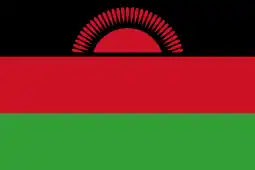
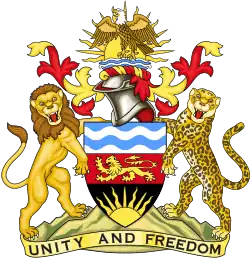
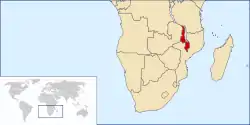
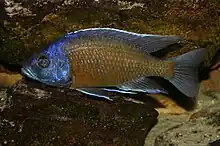
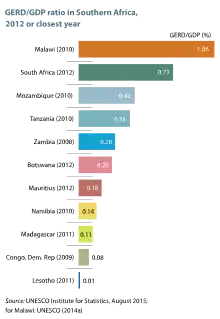
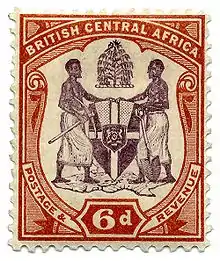




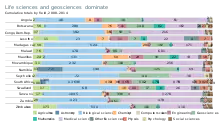
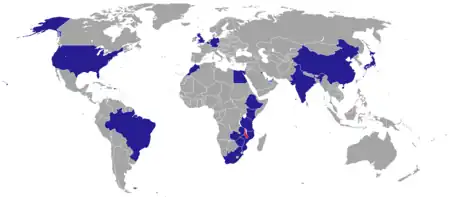
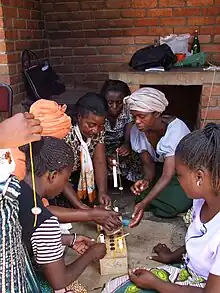

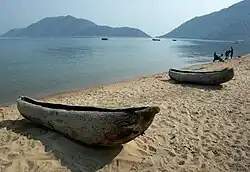

_-_crafts_market.JPG.webp)
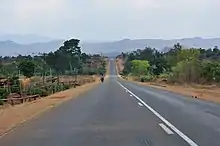
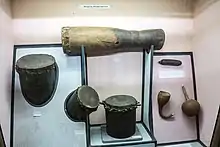

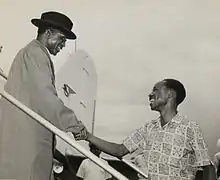
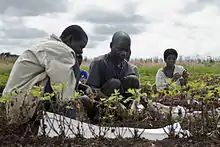
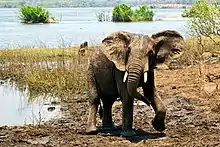
.jpg.webp)
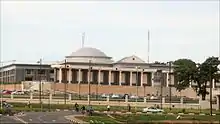
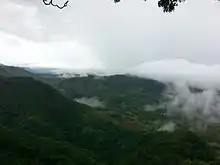
.jpg.webp)
_in_Southern_Africa_per_million_inhabitants%252C_2013_or_closest_year.svg.png.webp)
